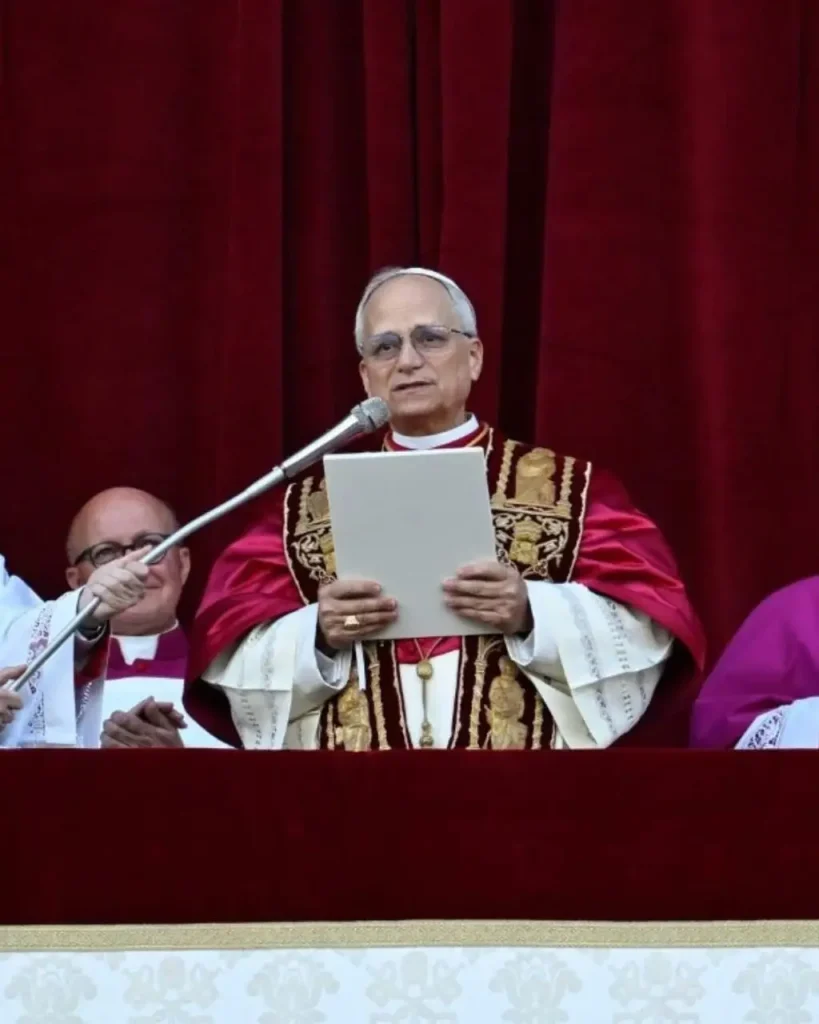The Catholic Church ushered in a new era on May 8th, 2024, with the election of Pope Leo XIV, formerly Cardinal Robert Francis Prevost, as the 267th successor to St. Peter. His election, following a conclave of 133 cardinal electors, marked a surprisingly rapid ascension for the relatively recently appointed cardinal, who had joined the College of Cardinals just two years prior. This swift rise to the papacy highlighted the profound respect and confidence he commanded within the Church hierarchy, suggesting a unique blend of qualities that resonated deeply with the electors. His first public appearance, delivering the time-honored Urbi et Orbi blessing from the iconic balcony of St. Peter’s Basilica, signaled the commencement of his pontificate and offered the world a first glimpse into his pastoral style and priorities.
Pope Leo XIV’s inaugural address was characterized by a distinct tone of humility, gratitude, and a powerful call for unity. He began by paying heartfelt tribute to his predecessor, Pope Francis, acknowledging his enduring impact on the Church. He specifically referenced Pope Francis’s presence on Easter Sunday despite his ailing health, highlighting it as a powerful testament to his unwavering dedication and commitment to his pastoral duties. This respectful acknowledgement not only honored the legacy of the departed pontiff but also set a tone of continuity and reverence for the traditions and values embodied by his predecessor. It underscored a commitment to building upon the foundation laid by Pope Francis while charting a new course for the Church in the face of evolving global challenges.
The newly elected Pope then shifted his focus to the core mission of the Church, emphasizing the unifying power of divine love and the importance of collaborative effort in spreading the Gospel message. His direct appeal to the College of Cardinals, inviting them to walk and work alongside him in this sacred task, emphasized his belief in shared responsibility and the importance of collegiality in leading the Church. This call for collaboration signaled a desire for a more inclusive and consultative approach to governance, suggesting a potential shift in dynamics within the Vatican. It also underscored the immense weight of the papal office and the need for collective wisdom and support in navigating the complex challenges facing the modern Church.
Furthermore, Pope Leo XIV extended his message beyond the confines of the Catholic Church, addressing people of all faiths and backgrounds across the globe. His blessing, imbued with a message of unwavering faith, love, mercy, and hope, resonated with a universal appeal, transcending denominational boundaries. This outreach signified a commitment to interfaith dialogue and a recognition of the shared human experience that connects people across diverse belief systems. It signaled an intention to engage with the wider world and to address the pressing global issues that affect all of humanity, promoting a message of peace, understanding, and compassion.
The election of Pope Leo XIV represents a pivotal moment in the history of the Catholic Church, ushering in a new chapter filled with both anticipation and uncertainty. His relatively short tenure as a cardinal, coupled with his rapid ascent to the papacy, creates a sense of intrigue and raises questions about the direction he will steer the Church in the years to come. His initial address, however, offers some preliminary insights into his priorities. The emphasis on humility, unity, and collaboration suggests a leadership style that prioritizes inclusivity and shared responsibility. His acknowledgement of Pope Francis’s legacy signals a commitment to building upon the foundations laid by his predecessor while also carving his own unique path.
Ultimately, the world watches with keen interest as Pope Leo XIV embarks on his papal journey. His background, his priorities, and his approach to leadership will undoubtedly shape the future trajectory of the Catholic Church. The challenges facing the Church in the 21st century are complex and multifaceted, ranging from declining church attendance in some regions to the ongoing need to address issues of social justice and inequality. How Pope Leo XIV navigates these challenges and leads the Church through this period of transition will be a defining aspect of his papacy and will leave an indelible mark on the history of the Catholic Church. His initial message of hope, unity, and love offers a promising glimpse into his vision for the future, but only time will tell how this vision translates into concrete action and shapes the global Catholic community.














